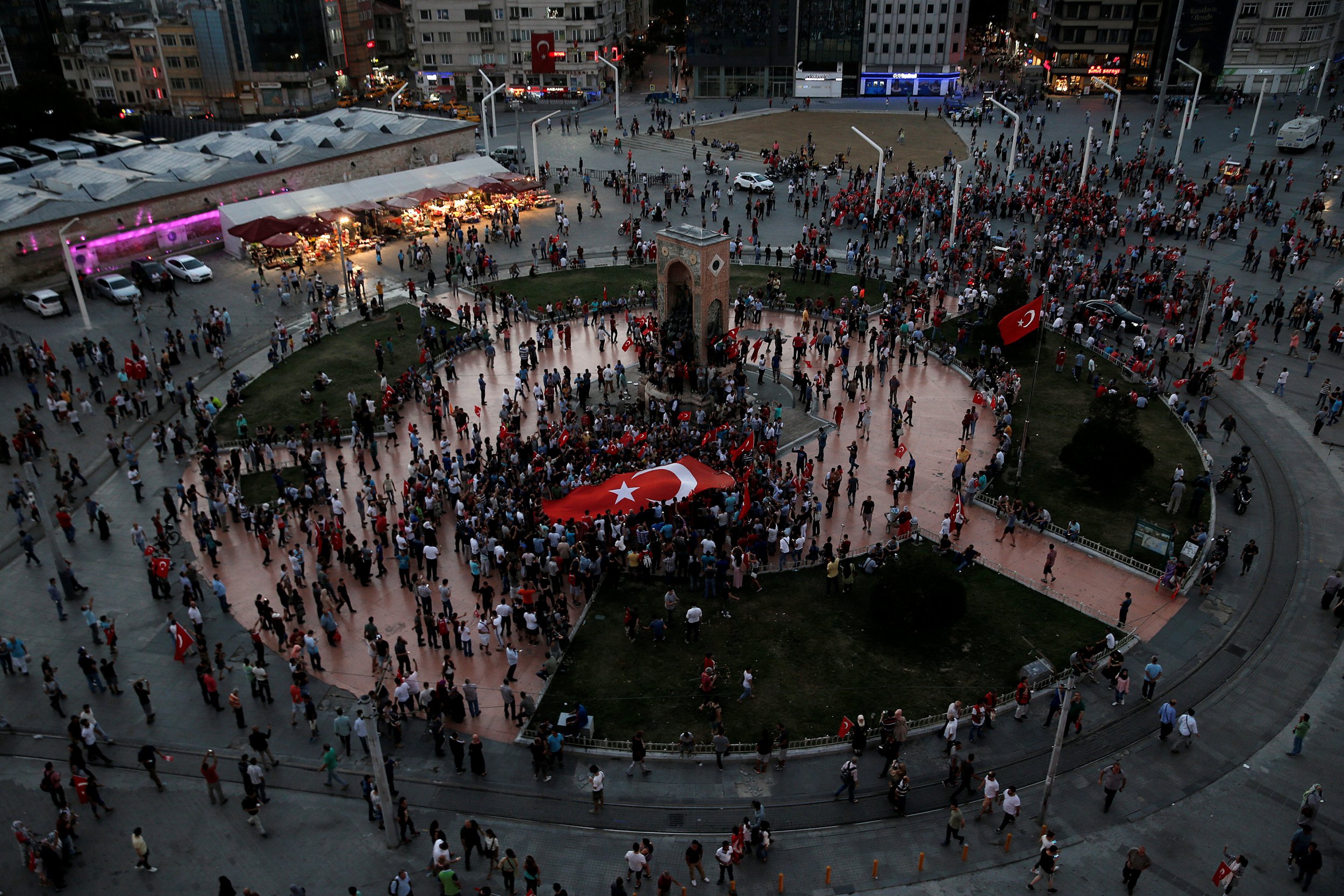
President Barack Obama urged parties on all sides of the crisis in Turkey on Saturday to avoid destabilizing behavior and follow the rule of law, a day after a coup attempt against President Tayyip Erdogan rocked U.S. efforts to combat the Islamic State militant group (ISIS).
Turkey closed its airspace to military aircraft following the coup attempt and power was cut off to Incirlik air base, which U.S. forces use to launch air attacks against the ISIS. U.S. officials were working with Turkish officials to resume air operations quickly, the Pentagon said.
Obama conferred with his national security and foreign policy advisers by conference call on Saturday morning and reiterated his support for the "democratically-elected, civilian" government of Turkey.
"While we have no indications as of yet that Americans were killed or injured in the violence, the president and his team lamented the loss of life and registered the vital need for all parties in Turkey to act within the rule of law and to avoid actions that would lead to further violence or instability," the White House said in a statement.
Obama noted the United States needed continued cooperation from Turkey in the fight against terrorism.
Forces loyal to Erdogan sought to crush the last remnants of the coup on Saturday as he launched a purge of the armed forces to tighten his grip on power.
Turkey scrambled jets throughout Friday night to resist the coup launched by a faction within Turkey's military that saw rebels piloting military aircraft.
The Incirlik air base near Adana in the southeast of the country was running on internal power sources after a loss of commercial power to the base, the Pentagon said.
Impact on air campaign
"U.S. officials are working with the Turks to resume air operations there as soon as possible," said Pentagon spokesman Peter Cook. "In the meantime, U.S. Central Command is adjusting flight operations in the counter-ISIL campaign to minimize any effects on the campaign."
Erdogan has cooperated with Washington in the fight against ISIS, but relations have been rocky with U.S. officials criticizing his increasing authoritarianism, Turkey's support for Islamist opposition groups fighting Syrian President Bashar al-Assad and the slow pace in sealing Turkey's border with Syria to foreign fighters.
The closing of the airspace over Incirlik effectively grounds U.S. aircraft and drones that have been instrumental in the campaign to crush ISIS in Syria, including supporting drives by Syrian Kurds and moderate Arabs, who are being advised by U.S. special forces, to seize the militant-held city of Manbij and Raqqa, the "capital" of the caliphate declared by ISIS.
"Clearly the variable here is how long the closure will last," said Jeffrey White, a former senior Defense Intelligence Agency analyst with the Washington Institute for Near East Policy. "If we're unable to fly from Incirlik, it will have a significant impact on the air campaign."
A prolonged closure of Incirlik's airspace could force the United States to divert aircraft based in the Persian Gulf to the Manbij and Raqqa offensives, constraining the air power available to support Iraqi and U.S. forces involved in operations against Islamic State. It could also complicate the Pentagon's ability to resupply and aid the U.S. special forces inside Syria.
A lengthy halt also could constrain the operations of U.S. drones, now flying out of Incirlik, to gather intelligence and strike Islamic State leaders in Raqqa and militants based there who plot and coordinate extremist attacks in Western Europe, White said.
If Incirlik remains closed for a extended period, U.S. manned and remotely piloted aircraft will be forced to make much longer flights to targets in northern Syria and Iraq from aircraft carriers in the Persian Gulf and air bases in Qatar and Kuwait, U.S. defense officials said.
Uncommon Knowledge
Newsweek is committed to challenging conventional wisdom and finding connections in the search for common ground.
Newsweek is committed to challenging conventional wisdom and finding connections in the search for common ground.
About the writer
To read how Newsweek uses AI as a newsroom tool, Click here.








